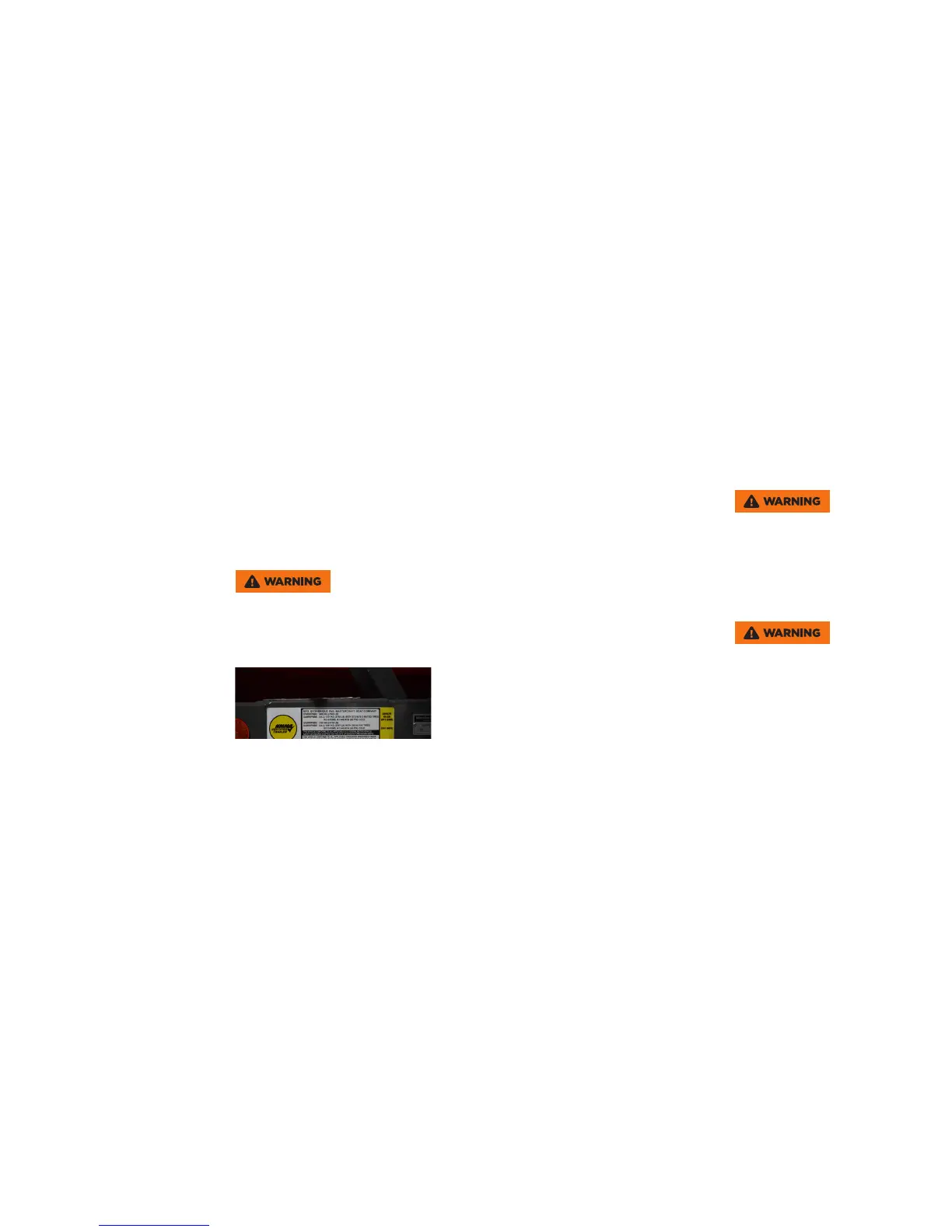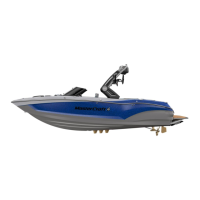2017 OWNERS MANUAL / 408
For manual transmissions, apply the parking brake and then turn
the vehicle o in either first gear when parked uphill, or reverse gear,
when parked downhill.
Uncoupling
When uncoupling the trailer, place blocks at the front and rear of the
trailer tires to ensure that the trailer does not roll away when the
coupling is released.
Unbalanced Load
An unbalanced load may cause the tongue to suddenly rotate up-
ward; therefore, before uncoupling, place jack stands under the rear
of the trailer.
Dicult Towing
If a trailer seems hard to tow or sways to one side, a brake rotor may
not be rotating freely. If this appears to be the problem, immediately
contact your authorized MasterCraft dealer for assistance. Ignoring
this symptom could result in brake failure.
Check Trailer Jack and Lug Wrench
The trailer jack and lug wrench that came with the tow vehicle may
also work on the trailer, but don’t count on it, check it to be sure
before you need it.
Road Trip Kit
Make up a special road trip kit and carry it with you on all trips. The
kit should include a spare wheel and tire, lug wrench, wheel chocks,
Check the certification label attached to the front left side of the
trailer. This is very important as it shows the maximum load-carrying
capacity of the trailer. It will also show the Gross Vehicle Weight
Rating (GVWR). Be sure that the total weight of the boat, engine,
gear and trailer does not exceed the GVWR.
NOTE: The gross Vehicle Weight Rating (“GVWR”) is the estimated
total weight of a road vehicle that is loaded to capacity, including
the weight of the vehicle itself. Therefore, the maximum load-
carrying capacity of the trailer is the GVWR less the weight of the
empty trailer.
Be especially careful to avoid overloading the trailer by putting
heavy baggage, camping gear, etc. inside the boat.
Do not tow the boat with a water-filled bladder or with water in the
ballast tanks. Failure to empty the contents of bladders or ballast
tanks will cause the tongue weight percentage to be incorrect.
Towing with water-filled bladder(s)/ballast tank(s) may not only
exceed the total weight limits for the trailer, but may also result
in the improper distribution of the weight on the trailer, thereby
making towing dicult and/or causing instability when towing. This
can be very dangerous to the driver, any passengers and to other
motorists.
bearing grease, spare strap for tie-downs and winch, extra lights,
wheel bearings and road flares.
Insurance
Some insurance policies do not provide coverage when towing a
trailer. Check the policy or call the insurance agent to be certain that
you have appropriate insurance coverage in place.
The total weight of the boat, engine, fuel, water and gear must not
exceed the trailer’s maximum load-carrying capacity. Overloading
can cause instability and loss of control while towing, which may
result in death, serious injury or property damage.
Load-Carrying Capacity
NEVER tow with water in ballast tanks or bags. Failure to empty
ballast tanks, bladders or bags on the boat prior to towing can
result in improper weight distribution, which can cause towing
instability. This could cause the driver to lose control of the tow rig,
resulting in death or serious injury to the driver, any passengers
and/or to other motorists, or property damage.
Do not tow the boat with wakeboards, skis or other gear left on
the board tower racks. Doing so may void the warranty and cause
damage to the boat or to vehicles following behind as boards and/or
racks may become disengaged.
Do not tow with any gear in the tower racks, even if the gear
appears to be secure. The racks are not designed to withstand
air pressure from highway speeds. Gear may become dislodged,
potentially causing damage to the boat or following vehicles.
